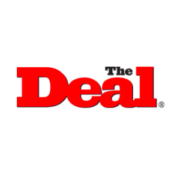In today’s uncertain world, just do the right thing. It’s good for business
By James S. Cassel

With so much noise and confusion surrounding the current political, business and economic climate, middle-market business owners are unsure how to protect the best interests of their businesses in the short and long term. The simple and common-sense answer: No matter what anyone else may be doing, you should continue doing the right thing, and support like-minded companies that do the right thing.
While it may be true that there are too many regulations, the fact is many are very important and necessary. The current administration has been reducing regulations (some believe indiscriminately) without really considering the true long-term impacts of these decisions. This might be great for business in the short term, but it could hurt significantly in the long term. So, we reduce regulations but we damage the environment, consumer protection, endanger people, or curb protections — how does that help anyone? It is shortsighted.
What can you do? Continue to run your business with the highest moral and ethical standards of sustainability and social consciousness — and choose to do business with companies that do the same. In this way, beyond protecting your business, you will exert influence in very positive and powerful ways: rewarding the do-gooders by supporting them financially, while letting the negligent ones feel it in their bottom lines.
For example, our government has reduced incentives for alternative energy — including solar and wind energy — in the recent tax code, which may be good for the coal, hydrocarbons and energy industries, but may not be good for the environment and for business. Additionally, the reduction of many of these regulations is chipping away at consumer protection. Again, you can lead by example and with your wallet by only doing business with companies that do the right thing.
One positive step that you might take with the extra money you will probably receive from the recent tax breaks is to apply it to environmentally friendly, sustainable, socially responsible initiatives. Additionally, you might invest in marketing programs to promote your sustainability policies and elevate your profile as a good steward of our environment, motivating others to follow suit. Look at shoe company TOMS or eyeglass company Warby Parker, two companies that since their founding as startups have provided one pair free to someone in need for every pair purchased.
Already, a growing number of companies are leading the charge. Consider Coca-Cola’s widely promoted “World Without Waste” packaging vision, which involves gathering and recycling a bottle or can for every one sold around the world by 2030 and renewing its focus on the entire packaging life cycle.
Dunkin’ Donuts recently announced its commitment to eliminate all foam cups by 2020, a highly responsible act. These initiatives are not only good business but vital for our planet. More companies should follow their lead.
At the same time, firms like Blackstone, one of the nation’s biggest asset managers, is making it clear to companies that it wants to invest in companies that are socially responsible. Its mission is clearly articulated on its corporate website, which reads: “Protecting the environment of the communities in which we operate is critically important. Fostering growth and creating enterprises of enduring value is a vital part of Blackstone’s commitment to being responsible corporate citizens. Our commitment to corporate responsibility is embedded into every investment decision we make.”
While bigger businesses like these have endless options and resources, middle-market companies should do their part within their own spheres of influence. Additionally, being socially conscious and socially responsible increases long-term value. You do not have to pay to clean up what you do not mess up. If you are going to sell your business, building sustainability as a socially responsible company can enhance the value of a sale as more private equity firms and investors look to ensure they are dealing with quality, responsible, sustainable companies.
Like it or not, while it can be nice to get extra money and live in a bubble, we are only fooling ourselves and hurting future generations by only considering the short term.
Click here to view the original article.






